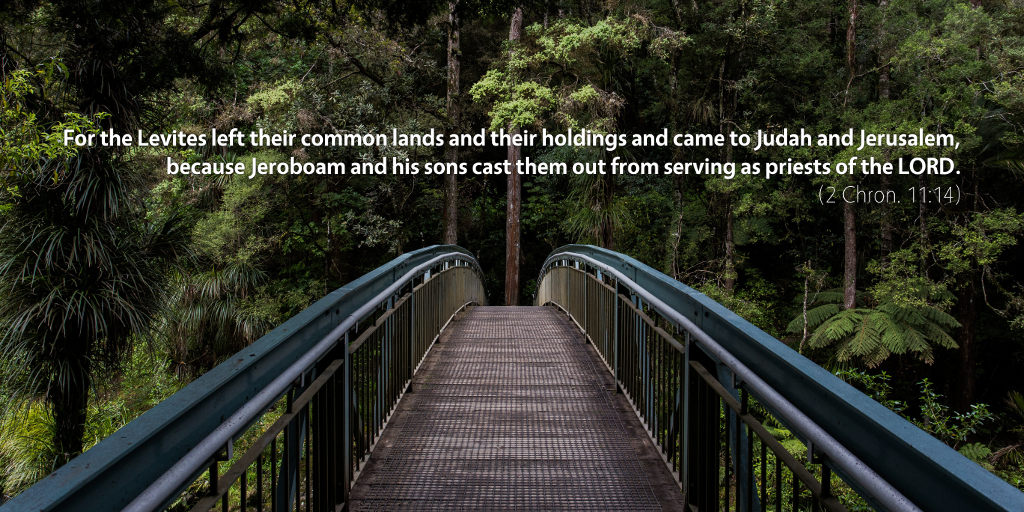Bible Readings for December 11th
2 Chronicles 11–12 | Revelation 2 | Zephaniah 3 | John 1
As we began to discuss yesterday, the accounts we will find in 2 Chronicles from this point forward will focus exclusively on the perspective of the southern nation of Judah, ignoring the northern nation of Israel almost entirely. But, while we lose information about Israel, we also will find more robust accounts of Judah’s stories. So, in today’s reading, we learn much more of the story surrounding Rehoboam’s reign than we did in 1 Kings.
To begin, we discover in 2 Chronicles 11:13–17 that the priests and the Levites abandoned their dwelling places among the northern tribes of Israel and presented themselves for duty to Rehoboam, “because Jeroboam and his sons cast them out from serving as priests of the LORD, and he appointed his own priests for the high places and for the goat idols and for the calves that he had made” (2 Chron. 11:14–15). While we knew that Jeroboam had ordained his own priests (1 Kgs. 12:31–32, 13:33), we do not discover until now that Jeroboam had expelled the true Levitical priests from their service.
Additionally, we find in 2 Chronicles a more nuanced perspective of the reign of Rehoboam. In 1 Kings, Rehoboam was characterized simply as a wicked king who did what was evil in the sight of Yahweh (1 Kgs. 14:21–24). While the Chronicler does not downplay Rehoboam’s wickedness (2 Chron. 12:1–5, 14), the material in 2 Chronicles also includes many of the positive aspects of Rehoboam’s reign. For example, Rehoboam builds cities for defense in Judah (2 Chron. 11:5–12), and he deals well with his own family (2 Chron. 11:18–23). Furthermore, when Yahweh raises up Shishak, king of Egypt, against Rehoboam, we discover that Rehoboam and the princes of Israel humble themselves in repentance before Yahweh, so that Yahweh relents from destroying Rehoboam altogether (2 Chron. 12:6–8). The Chronicler even specifically includes the statement that conditions during this time are “good” in Judah (2 Chron. 12:12).
Now, it isn’t that this story will end differently, as though the Chronicler is telling an alternate reality story that concludes with Judah defeating the Babylonians. No, Judah will still end up in exile at the end of Chronicles, just as we read in 2 Kings. The difference, though, is that the Chronicler gives us glimpses into what might have been if Judah had faithfully obeyed Yahweh. The goal is not to play an extended game of “what if” but rather to imagine how Yahweh might ultimately reform his people through the coming Messiah.
Even as the nation of Judah sinks deeper into their sin and idolatry, then, the Chronicler holds out hope that one day, the Messiah would finally arrive. The goal of David’s greater Son does not disappear but rather becomes more urgent.
Podcast: Play in new window | Download (4.6MB) | Embed
Subscribe: Apple Podcasts | RSS | More

Scripture quotations are from The Holy Bible, English Standard Version copyright © 2001 by Crossway Bibles, a division of Good News Publishers. Used by permission. All rights reserved.


